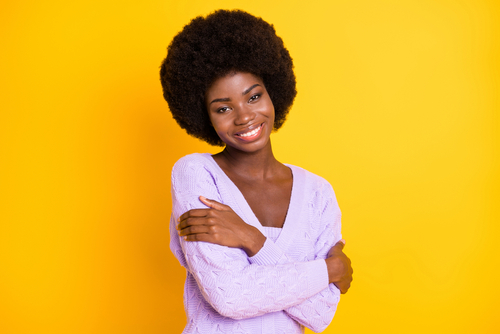
What is it like being a woman today?
While we cannot dismiss how far women’s rights have come, we can all agree the journey is far from over. Let’s take a realistic look at what it looks like to be an African woman today.
March is Women’s History month worldwide, and so we will be talking a lot about womanhood.
For this article, every woman I asked about what it was like being a woman in this day and age instantly sighed from a place of deep knowing. Despite the sacrifices of the women that came before us we still must contend with exclusion, disenfranchisement, and oppression.
The list includes rape culture, body shaming, high maternal mortality rates, ineffective or ill-designed medical interventions, strenuous emotional labour… the list goes on. Is it better to be a woman today? Yes! Is it still extremely hard to be a woman in today’s world? Yes!
Here are some of the more collective reasons why:
My body is not my choice
It is frankly exhausting to talk about at this point. It should be obvious that women should get to dictate what we can or cannot do with our own bodies.
Imagine a world where men were prohibited by law from taking power over their reproduction. It’s ironic because studies have shown that men refuse to take male contraception because of the same side effects that women have had to endure for decades. Women are not only forced to shoulder the task of birth control; we must also shoulder the repercussions when the methods fail.
Furthermore, governments refuse to allow comprehensive sex education in schools but expect girls and young women to bear children they cannot raise and break their backs in poverty due to the lack of supportive programs for young and often single mothers. No prevention and no cure. Make it make sense!
My period happens every month, and it’s not a choice!
Now imagine a world where basic needs are treated as luxuries. How is period poverty still a thing today?
We are forced to watch as our largely male governments debate the economics and financial implications of providing free sanitary products, while young girls miss school and vulnerable women scramble for dehumanising alternatives. Half the population is struggling to afford the biological necessities we need every month and it is not a priority.
My vagina is not a threat
We also have to launch educational campaigns to convince communities that Female Genital Mutilation is a gruesome practice rooted in the oppression of women and that they shouldn’t want to police women’s sexuality to the extent of maiming us.
Even as the prevalence of FGM is finally tapering off other forms of sexual oppression have filled the void. The hyper sexualisation of women and girls exposes us to sex trafficking, body shaming and pleasure policing. All to control and regulate us. But my vagina is not a weapon of mass destruction, nor is my sexuality.
I watch my back quite often
Few other slogans have resonated with African women as a whole more than #IamNext. The slogan that originated in South Africa represents the horrors of femicide and male perpetrated violence across the continent. In Kenya the recent BBC Documentary demonstrated the alarming levels of physical, sexual, and emotional harassment women go through in the workplace.
Unlike #MeToo which calls for accountability and justice, #IamNext shows the extent of violence against women in countries whose men, governments and judicial systems are apathetic to our mass murder. The hashtag helped to demystify the myth that we are only unsafe in public spaces with strangers. Home is not safe, family is not safe, lovers are not safe.
Although the situation is dire and disheartening, the fight to end the silence has helped us find community, support and healing resources. But with each day come other terrible stories of strangers or loved one’s abuse and/or death. So we all remain hyper-aware and perpetually terrified every day of our lives.
Empowerment only goes so far…
We could say that the discussions on how the boy child has been left behind are unfounded, but we will instead acknowledge some truths. Affirmative gender action means as a woman I have access to both specialised and general educational and professional opportunities. It means I have a higher chance now of getting a foot in the door.
Unfortunately, the system is still rigged. In as long as we live in a patriarchal society women’s advancement is still severely hampered. Even with an entry advantage, women are still paid less for the same positions, consistently undervalued and dismissed in all fields, penalised for biological states such as pregnancy and menstruation, denied growth opportunities and exposed to regular sexual harassment in the school and workplace.
Getting a scholarship or university admission because I am a woman means nothing if my lecturers expect me to sleep with them for grades. Receiving a demotion or termination because I have to take maternity leave, places unfair hurdles in my career. Being an expert in my field is worthless if there is automatic deference to men despite capability and experience.
And so on. Empowerment can only take women so far when the entire system remains based on our discrimination. It may be extremely hard and dangerous to live as a woman in 2020 but I’d rather be here where change is not only possible, but happening all around me.
What does being a woman in today’s world feel like for you?
